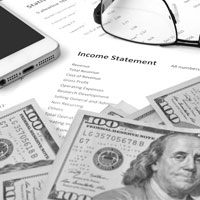 Contact
About Us
Articles
Home
Contact
About Us
Articles
Home

As the Federal Reserve, reacting to the impact of the COVID-19 pandemic, slashed the rate that banks are charged to borrow money to almost zero, mortgage interest rates tumbled to historic lows. Lower rates are attracting a flood of borrowers looking to refinance their mortgages. The Mortgage Bankers Association projects their refi volume to triple in the first half of 2020, compared to the same time period last year, as thousands of homeowners have the same idea.
By the beginning of April 2020, the average 30-year fixed rate had fallen to 3.33% (assuming 0.7% points paid), down significantly from the already-low 4.08% rate a year ago.By Interest rates hit a point so low that borrowers can save meaningful amounts by refinancing even very young loans.
One common rule of thumb is that homeowners should consider refinancing if they can save three-quarters of a point or more.
According to Black Knight, a prominent technology and data analytics firm in the mortgage industry, a 30-year mortgage borrower may be a good candidate for refinancing if they meet these criteria:
In the short run, there may be some snags, according to industry insiders. Yes, rates are extremely low. But lenders, spooked by large numbers of layoffs due to business shutdowns, have been tightening their credit standards. Debt-to-income ratios are being raised sharply, and borrowers with high debt-to-income ratios and sub-700 credit scores may have trouble getting approved.
Also, non-qualifying loans — jumbo loans, low-document and alt-doc loans — are all but frozen in the short-term.
Meanwhile, lenders will be careful to verify employment and income prior to closing.
Also, be patient. Processing times are also slowed because allied professionals that mortgage lenders rely on — title and escrow companies, notaries, law offices and county deed recording workers — have limited operations as a result of the COVID-19 pandemic.
The good news is that most experts do not expect the current stricter lending environment to continue. Most mortgage insiders expect underwriting standards to quickly return to the mean once the nation reopens for business, with interest rates forecast to stay in the mid 3.5% range for the next few years, according to an economist with the Mortgage Bankers Association.
When the dust settles — and underwriting requirements return to normal — mortgage rates should still be near historic lows. And that's an opportunity for significant savings for many homeowners.
As of the end of February, the average refinance balance was $364,300, according to data from the Mortgage Bankers Association. If the typical borrower took out a loan at 4.25 percent a year ago, and refinances at 3.5%, that's a savings of 0.75 percentage points. Assuming they refinanced into a new 30-year loan, that translates to a monthly savings of $184, disregarding closing costs***.
Some other good news: Fannie Mae and Freddie Mac have loosened their rules for income verification — with the FHA and VA following suit. With so many businesses being closed, HR departments and business owners have become less responsive to income verification requests. But for conventional loans — those qualifying for Freddie Mac and Fannie Mae purchasing — lenders may now accept a verbal verification of employment, an email from an employer, a recent pay stub showing sufficient year-to-date income or a bank statement showing a recent payroll deposit.
This may be an opportune time to take advantage of balance transfer offers on credit cards.

If you can qualify, you may be able to save money with a balance transfer card. These typically come with an introductory zero-percent interest rate on balance transfers. These introductory rates can last anywhere from six to 21 months (though you can expect a fee on balance transfers; 3% is common.)
But issuers are spooked at the prospect of so many people losing employment and have tightened their credit standards as well. To be competitive for one, you need a current income (unemployment benefits usually count) as well as an above-average credit score.
If you do decide to go this route, understand that you still have to make your minimum monthly payments. If you miss a payment, your bank could revoke the 0% rate, and even charge you a penalty rate, which can go as high as 29%. The consequence of a missed payment on a significant balance is steep, and include:
Miss a payment or two, and you could see your other credit card issuers revoke your access to credit as well, in a practice called universal default.
If your credit is less-than-pristine, your debt-to-income ratio is nothing to brag about, or your job is in doubt, you may have to wait until things stabilize a bit to get the best refinance deals, both on your mortgage and on your credit card debt.
Meanwhile, do everything you can to protect your credit rating. Once the economy finds its footing, you'll become competitive again for refinancing, and you'll want a good credit score to get the best possible terms.
If you lost your job, protecting your credit is even more important: A CareerBuilder survey found that 29% of employers pull credit reports on job applicants — especially where the position involves handling money.
Here's how to protect your credit score so that you are set up for success when the economy recovers:
For more information on how your FICO score is calculated, click here.
Alliance America is an insurance and financial services company. Our financial professionals can assist you in maximizing your retirement resources and achieving your future goals. We have access to an array of products and services, all focused on helping you enjoy the retirement lifestyle you want and deserve. You can request a no-cost, no-obligation consultation by calling (833) 219-6884 today.


